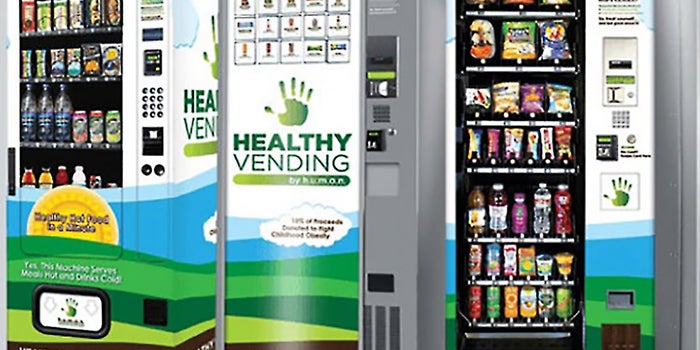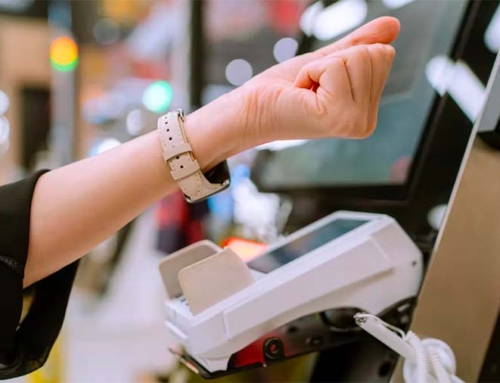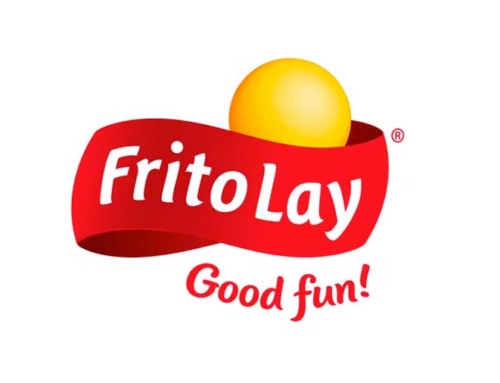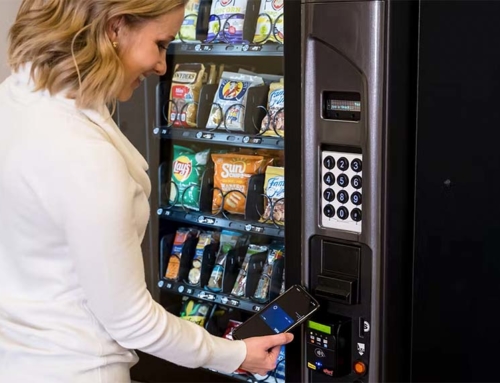Reprinted from Entrepreneur.com
What did you order the last time you grabbed a quick vending machine snack? Soda, candy – maybe some peanuts if you were feeling healthy? Soon your workplace may be offering fresher options given the rapid growth of ‘healthy’ vending machine franchises.
The trend of schools and businesses adopting ‘healthy’ vending machines isn’t new, but companies within that space have been seeing rapid growth as of late. In the last three months, HUMAN Healthy Vending, a franchise headquartered in Los Angeles that sells products such as natural smoothies and dried fruit, has expanded into 73 new markets in 18 states. While that’s a big jump, the company says it has carved out a path of steady growth, with revenue jumping 2,378 percent over the last three years.
HUMAN Healthy Vending CEO Sean Kelly, who cofounded the company in 2008, claims healthy vending is a $42 billion dollar industry that few are paying attention to – a fact that he and HUMAN may soon change as consumers look for ways to get healthier food faster. “Why can’t we have a Whole Foods experience everywhere we go?” he says.
As the industry grows, however, so does competition. Fresh Healthy Vending, a company based in San Diego that was founded in 2010, has over 4,000 vending machines throughout the U.S. that carry products like coconut milk and yogurt. “There is so much opportunity since the concept has been so well accepted,” says Nick Yates, Fresh’s vice president of corporate operations.
Half of Fresh’s 4,000 vending units are operated by franchisees. On average, each franchisee operates around 12 vending machines. HUMAN’s numbers are comparable, with the company requiring that franchisees buy at least five machines, but most operating around 10.
Franchisees place vending machines in schools, businesses, YMCAs – anywhere people might be seeking healthy snacks. Both HUMAN and Fresh report about 60% of their machines are currently located in schools. The USDA’s “Smart Snacks In Schools” rules and regulations have encouraged schools to swap out traditional vending machines with the likes of HUMAN and Fresh, allowing the companies to grow their brands and increase revenue.
These days, it’s businesses that are driving the growth of healthy vending companies. According to Yates, workplace managers have finally started to realize that employees function better when they’re eating a Soyjoy bar instead of guzzling five Cokes a day.
Yates reported that schools have accounted for only 40% of Fresh’s recent vending locations, while 30% are in businesses and the remainder are in community centers, government buildings and shopping malls.
HUMAN has responded to the new market through the creation of a new type of market – the HUMAN Healthy Market – essentially a small kiosk with an attached self-checkout counter. Micromarkets’ self-service kiosks would quickly be run out of business by the five-finger discount in the chaos of schools. However, in an office, the fresh food offered by a HUMAN Healthy Market can fill a demand previously met by communal fridges and vending machine M&Ms. Now, around 50 percent of the micromarkets’ sales are to big businesses.
HUMAN hopes to create self-service options that are not just convenient, but worth seeking out. “We’re creating vending machines and markets as destination locations,” says Kelly. Think self-check-out plus fast food, divided by gourmet.
Technology is advancing just as swiftly as demand. Vending machines are increasingly intelligent with advances in vending machine and kiosk technology. Fresh Healthy Vending Machines now have touch screens, social media functions and even facial recognition technology to identify repeat users. Franchisees can remotely show advertisements, track trends and even educate customers on healthy eating.
The end goal? Kelly hopes that eventually healthy vending machines can make healthy foods the easy option as HUMAN grows. With HUMAN and Fresh Healthy Vending’s expansion, soon all of America may be getting a taste of the franchises’ successes.






